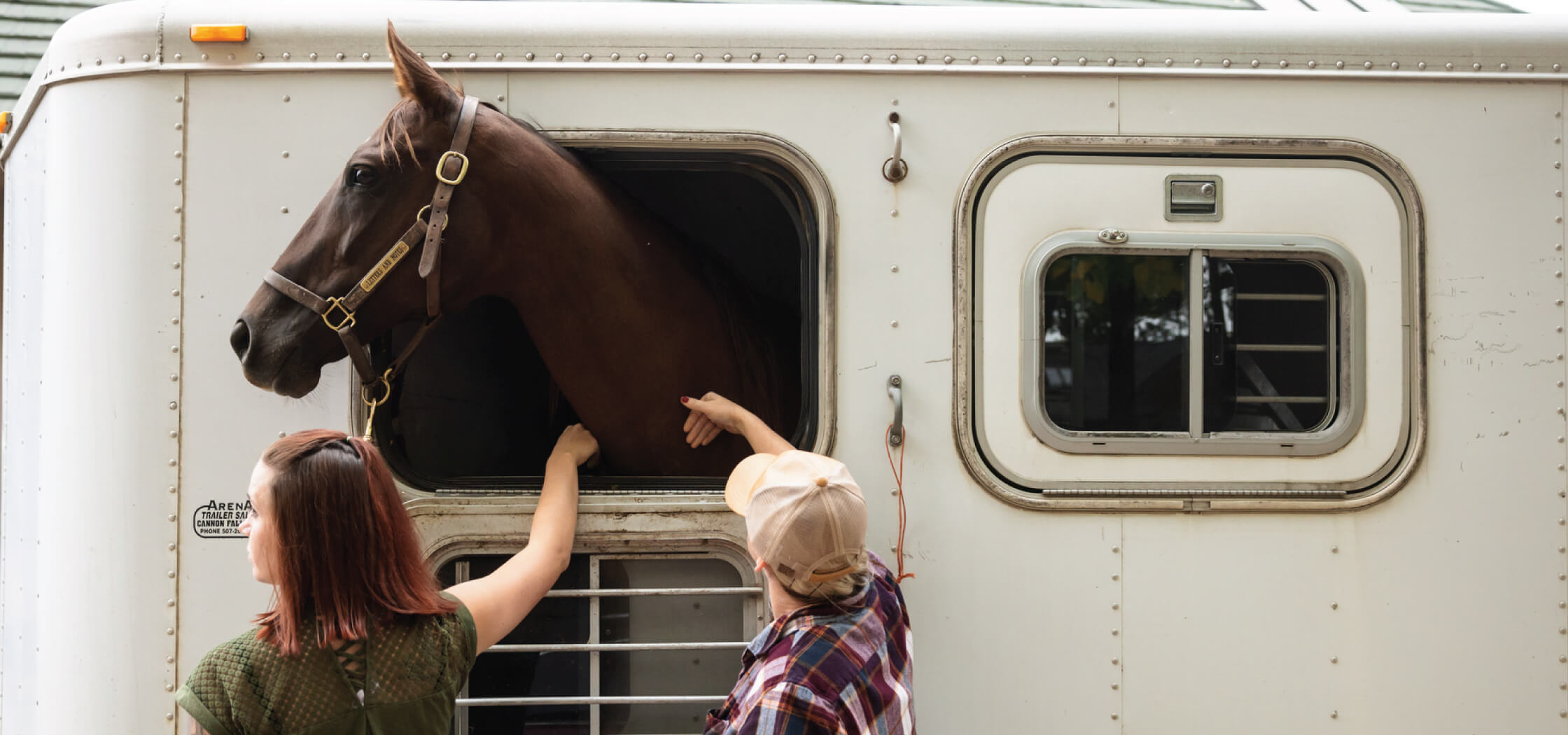Common Stressors in Horses
by Boehringer Ingelheim / March 21, 2024

Five Common Stressors in Horses
As a horse owner, it’s crucial to be aware of the factors that can cause stress in a horse – both the obvious and not so obvious. Stress can not only cause a horse to be uncomfortable in their environment, it can also cause poor gastric health if left unaddressed. The best way to minimize stress in your equine companion’s life is by taking proactive measures. See below for 5 common stressors in horses, and how you can take action.
1. New Pasture Mate
Horses are sensitive to their surroundings, and the arrival of a new horse in their environment can lead to a shift in dynamics.
When introducing a new pasture mate, observe interactions carefully, and ensure each horse has enough time, space and resources to adjust gradually. Provide multiple feeding stations, water sources and shelter areas to reduce competition and promote peaceful integration.
2. Change in Routine
Horses are creatures of habit, and rely on consistency in their day-to-day routines. A slight change in things like feed times, exercise schedules or stable arrangements can induce stress in horses.
Whenever possible, maintain a consistent routine to provide stability for your horse by sticking to regular feeding and exercise schedules. If changes are unavoidable, introduce them gradually, and monitor your horse’s response closely.
3. Traveling
Traveling with your horse, whether for shows, relocation or a trail ride, can be a significant stressor. Prolonged time in trailers and exposure to unfamiliar environments can lead to anxiety and gastric disturbances.
To minimize stress during travel, ensure the trailer is well-ventilated and comfortable (appropriate size for your horse, driven in a controlled manner, up to date on maintenance). Make frequent stops for water, rest and gentle exercise such as a hand walk. Allow your horse to stretch their legs and graze, if possible. After traveling, closely monitor your horse’s eating habits and overall behavior for any signs of gastric upset.
4. Weather
Weather conditions, such as extreme temperatures and storms, can be triggering to horses especially when combined with changes in turnout and management.
Provide appropriate shelter to protect your horse from extreme weather conditions. Ensure they have access to shade during hot weather and a warm, dry shelter during cold or wet conditions. Consider using calming techniques, such as playing soothing music, like RelaxTrax, to help your horse cope with thunder-and-lightning storms.
5. Limited Turnout and/or Exercise
As horses are active by nature, insufficient turnout time or limited time to exercise can lead to stress. Lack of movement can lead to frustration, anxiety and digestive problems.
Regular exercise is essential for promoting healthy digestion and overall well-being. If limited turnout is unavoidable, provide additional mental stimulation to help alleviate stress. This can include using toys, slow feeders or engaging in regular social interactions with other horses or humans.
It’s important to remember that a horse’s stress is not limited to what is listed above, as many other factors can contribute to equine stress. Be aware of the potential stressors in your horse’s everyday life, and work closely with your veterinarian to prevent and treat ulcers properly.
©2025 Boehringer Ingelheim Animal Health USA Inc., Duluth, GA. All rights reserved. US-EQU-0124-2024






